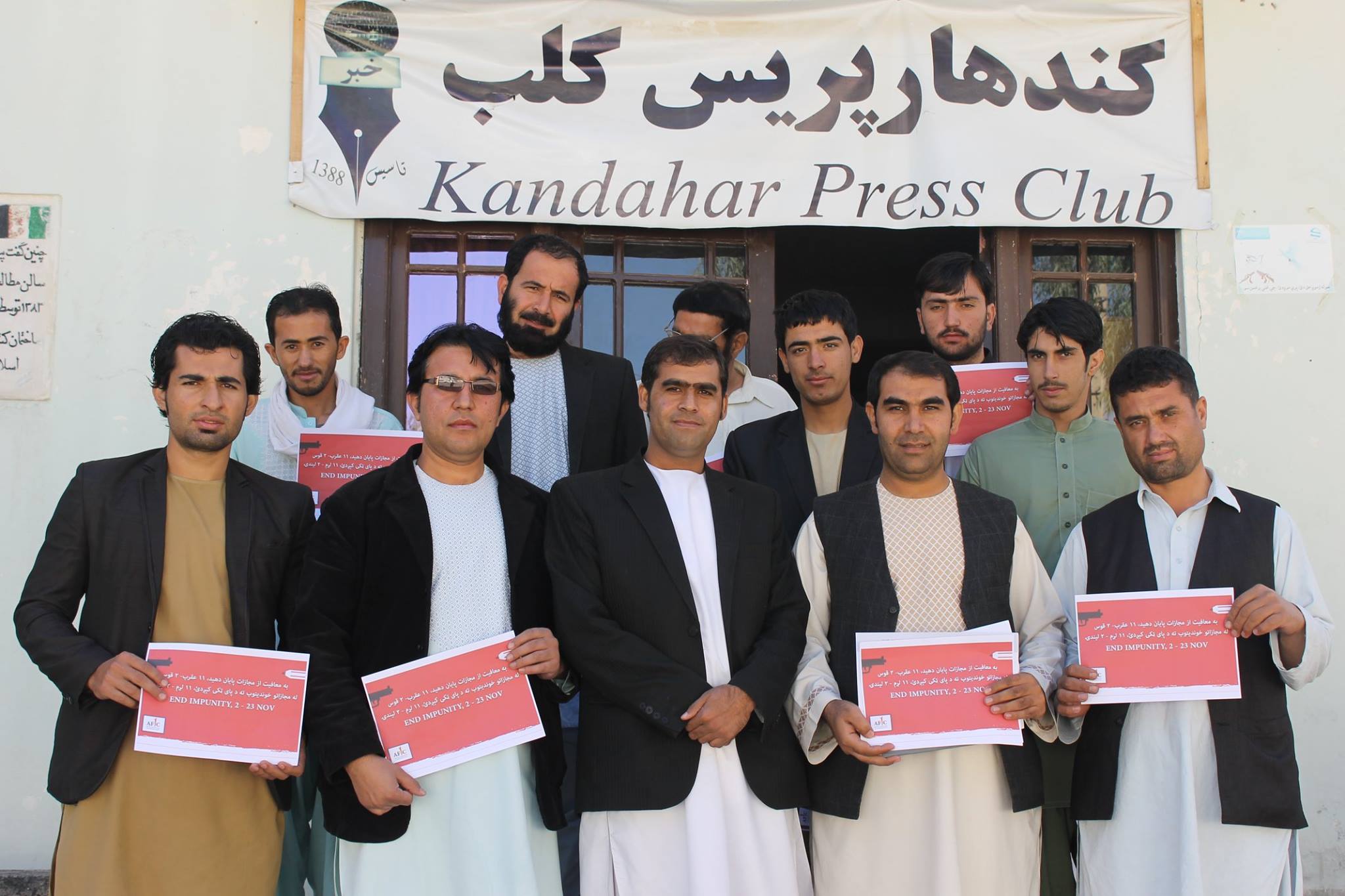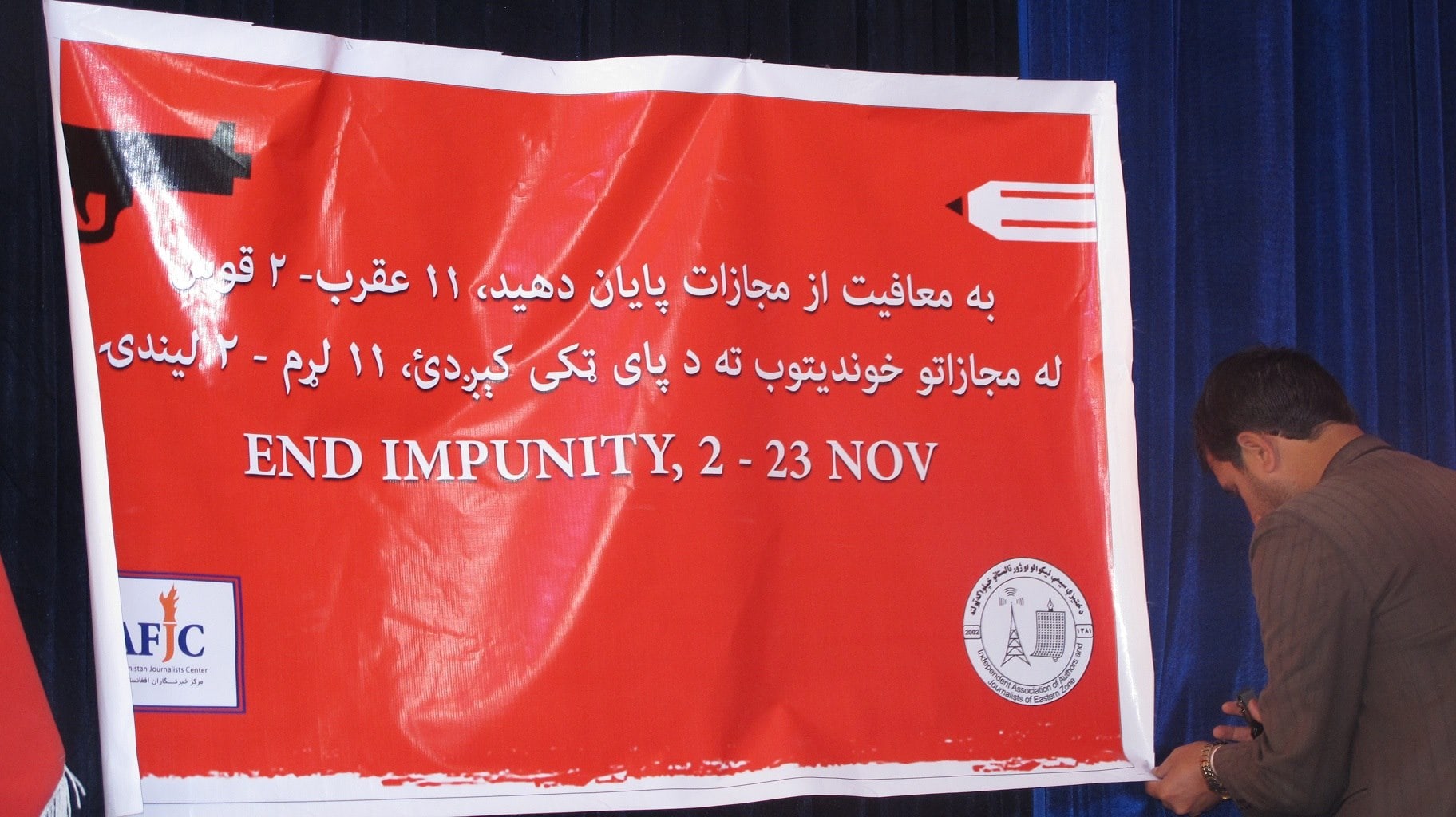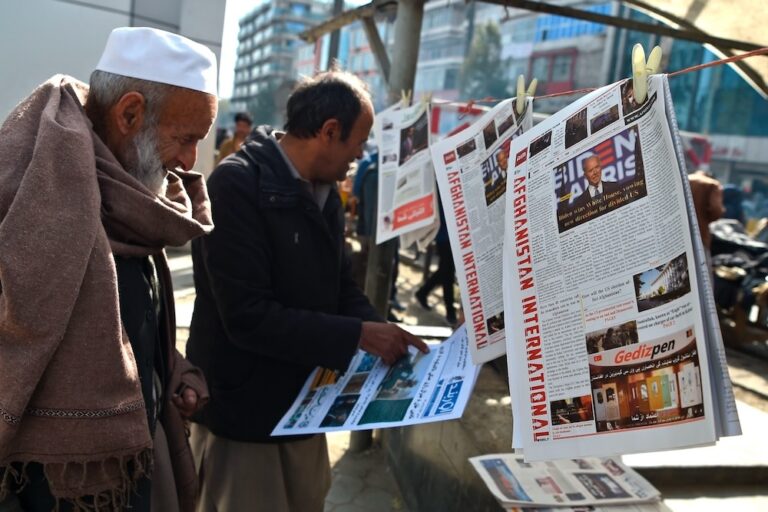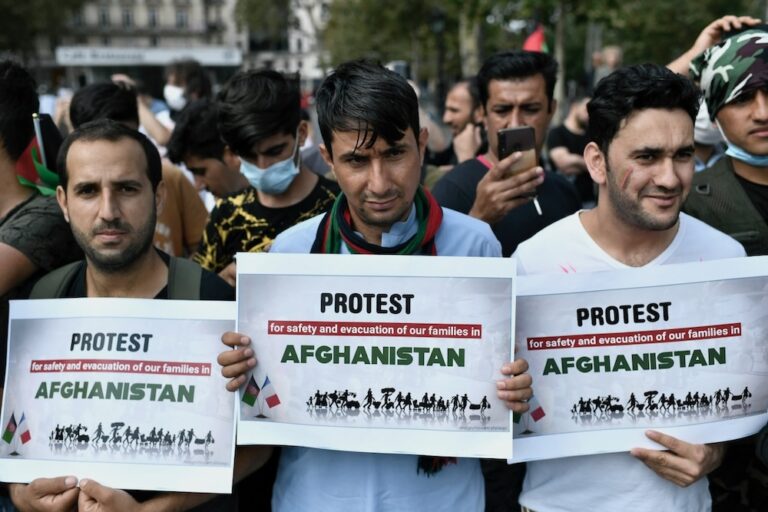In response to AFJC's national campaign against impunity, the Chief Executive Officer of Afghanistan's National Unity Government vowed to put an end to impunity for crimes against journalists and media workers.
This statement was originally published on afjc.af on 25 November 2014.
The Chief Executive Officer of Afghanistan’s National Unity Government vowed to put an end to impunity for crimes against journalists and media workers in Afghanistan.
In a statement issued on the occasion of a national campaign to end impunity, Abdullah Abdullah expressed his support for freedom of expression and the media, saying that the National Unity Government remains committed to protecting press freedom.
On November 22, 2014, Dr. Abdullah met senior members from Afghanistan Journalists Center (AFJC) and other media support organizations, and assured them of his government’s intent to take essential actions to put an end to impunity.
The CEO’s spokesperson, Asif Ashna, read out his statement during a gathering held in Kabul on November 23. Abdullah promised that the dossiers of media-related victims will be thoroughly investigated.
“By investigating and dealing with these dossiers and prosecuting the perpetrators, we intend to [put an end to] impunity, so that those who committed crimes against journalists and media workers are prosecuted and journalists feel safe and [do not have to resort to] self-censorship,” Abdullah added.
He further noted that the National Unity Government of Afghanistan continues to support press freedom and media activities as a significant achievement and is committed to preserving it.
Ahmad Quraishi, Executive Director of AFJC, told a news conference that 46 journalists, writers or media workers have lost their lives over the last two decades in Afghanistan. However, the perpetrators in most of these cases have not been prosecuted.
He added that 29 of them have been directly targeted and murdered while performing their professional duties, whereas 17 others lost their lives in explosions or due to armed conflicts.
“19 of the murdered journalists and media workers were Afghan citizens. During this period, two more Afghan journalists were killed in Pakistan,” Quraishi noted.
The AFJC Director said that 12 of these journalists have been killed by criminal groups, six by the Taliban, five by local residents or family members, three by unknown individuals, one by US troops, one by British ISAF troops and one by members of the Afghan National Police.
Quraishi believes that impunity is a festering sore impacting press freedom and every such attack distorts reality by creating a climate of fear and self-censorship. Promoting the safety of journalists and fighting impunity will require prevention mechanisms and actions to address some of the root causes of violence against journalists and of impunity.
Statistics gathered by AFJC suggest that 93% of perpetrators of these murder cases have not been prosecuted. There have been prosecutions in the murder cases of Sayed Hamid Noori, reporter for the state-run National TV, and Rahman Qol, Editor-in-Chief of Andkhoi magazine. Recently, primary courts have issued verdicts against the murderers of Associated Press photographer Anja Niedringhaus and former ISAF reporter Palwasha Tukhi. However, other assailants continue to enjoy impunity.
These findings show that over the last 20 years, 17 more journalists have been killed in improvised device explosions or armed attacks, where they were not directly targeted.
These incidents have been attributed to the Taliban as they were behind the explosions and attacks, or have claimed responsibility for them. However, in most cases the attackers have not been prosecuted.
During this year’s campaign activities against impunity organized by AFJC and supported by IFEX, many gatherings and protest rallies were organized in the cities of Kabul, Kunduz, Mazar-e-Sharif, Herat, Lashkargah, Kandahar, Khost, Ghazni, Jalalabad and Charikars. Journalists, media workers, civil society activists and press freedom advocates attended these events.
Participants in this national campaign called on the Afghan Government to fulfill its promises and take action to end impunity for crimes against journalists and not permit a culture of impunity to flourish. The government was also urged to implement precautionary measures for the safety of journalists.

AFJC



